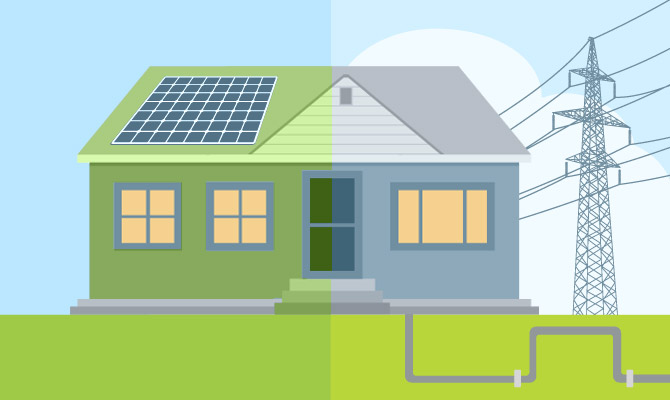
Even though fossil fuels have helped shape American society, it’s time for them to step aside and make room for solar power. Solar energy is becoming increasingly popular in the US, and for good reason. If you’re considering whether or not you should go solar, here are some things to keep in mind:
Availability
Although the sun may not always be shining, solar power is here to stay, even on rainy days. Solar energy is considered to be a renewable resource that cannot be depleted. Fossil fuels, on the other hand, are predicted to run dry within the next hundred years or so.
That being said, fossil fuels provide a more reliable source of energy. They can be used anytime, while solar energy is technically only available when the sun is shining. Unless you have a solar battery attached to your system, your home cannot store its own energy. When your solar panels are exposed to full sunlight, they generate electricity. They produce enough electricity to run your home during the hours in which they receive sunlight. A meter collects any excess energy your panels produce and credits you for unused energy. When the sun isn’t shining and you use electricity, you’re not actually using the stored energy, you’re using those credits to buy electricity.
Cost
Comparing the cost of solar energy and fossil fuels is like comparing apples and oranges. Solar power is created in a completely different way than power generated by fossil fuels. Fossil fuels are less expensive per megawatt but you need to pay for that fuel every time you use it. Solar energy costs more up front because of the installation of a solar panel system, but over time the cost of the fuel becomes free and maintenance costs are much lower than a fossil fuel plant.
Advances in photovoltaic cells (what solar panels are made of) and the increase in the manufacturing of solar panels in China has brought down the price of solar energy. For example, solar panels are 75% cheaper than they were 5 years ago. Citibank recently conducted a study where they estimated that the price of solar decreases by 30% when the use of solar doubles in an area. This means that the more popular solar power is in your location, the more savings you get to pocket.
Emissions
It’s no secret that the harvesting, transport, and burning of fossil fuels creates pollution that is hazardous to our health and the environment. Not only does burning fossil fuels release toxins, but it also creates large volumes of carbon dioxide which contributes to global warming. Many people may be surprised that the production of solar energy systems is not completely “green”. Some toxic chemicals are used while manufacturing the panels and large solar farms can disrupt the local environment. That being said, in comparison, the negative environmental effect of solar panels is minimal compared to the use of fossil fuels.
Did you know that the average home’s solar system can offset the emissions of roughly 100,000 pounds of carbon dioxide in 20 years? That’s the same as driving a car for 100,000 miles!
The decision to go solar is a big one. When considering going solar, it’s important to think about the long term benefits you’ll receive from each option. Do your wallet and the environment a favor by going solar. The price of fossil fuels has been known to fluctuate, while the cost of solar has been declining annually. A typical warranty for solar panels is 20 to 25 years, and it’s said that solar panels can provide electricity for 30 to 40 years. Many state governments are even providing incentives such as financial aid programs and tax incentives for people who decide to go solar. This means that it’s easier than ever to lock in low energy costs.








